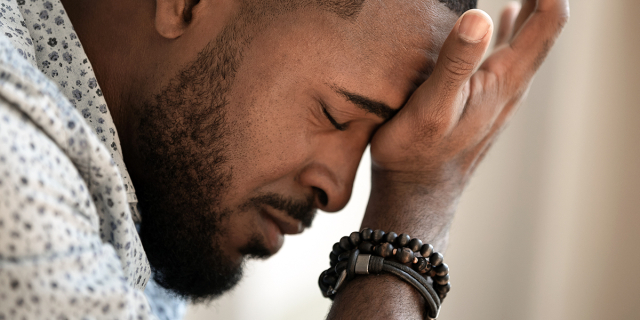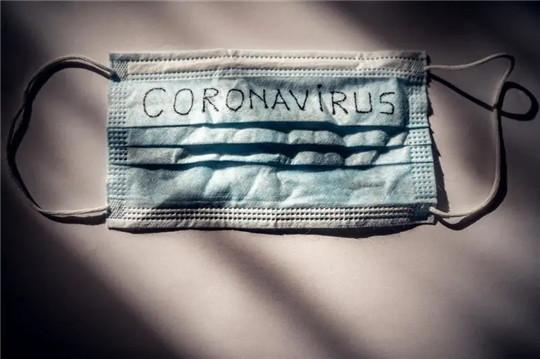Source: Trinidad Newsday
Originally published: 15th April 2020

THE SENIOR nurse at one of the hospitals calls at 10.30 pm. She is sitting in the gallery with her husband – both of them are awake and discussing her return to work the next day.
She tells me that on two occasions she left for work only to return home after a halfway journey, frightened and not able to breathe. Her teenage son greeted her at the door and the entire family broke down in tears.
They don’t know what it’s really like, she cries out, referring to the authorities, to be in constant fear that I can become infected and bring this home to my family! Yes, I take the precautions, I sanitise everything and bathe before entering the house, but the fear is real. What if I get my family ill?
My colleagues and I talk about it all the time. We are afraid. We can’t do our job well and we are anxious and worried.
It is now 12.30 am and I am preparing to get some rest. A call comes in from Princes Town. The woman cannot sleep and has been restless for the last three days. Her chest is heavy, she says, and she has been crying constantly. Her brother is up, pacing the floor and her parents are awake in their room. No-one can sleep.
After about 30 minutes, she calms down and is prepared to discuss some coping strategies. Since then, she calls every other day to say she is now baking, writing poetry to express her thoughts and the anxieties have lessened.
The next morning, the father of a 19-year-old university student calls at 10 am. The behaviours of his son have the family climbing the walls, he tells me. They cannot deal with him anymore. He stopped taking his medication and refuses to listen to anyone. His mother is afraid and his younger sister has stopped talking.
The father puts his son on the phone and we talk about what’s happening for nearly an hour. We structure a plan to cope and he calls the next day to check in. His tone is lighter. He does not call again.
The mother of a Form 5 student is concerned that her daughter, an A student at a prestigious school, is no longer studying or seemed inclined to do anything. She sits and stares, just stares as if in a daze.
The mother called because she noticed scratch marks on her daughter’s wrists. When questioned by her mother, the daughter responded that it was nothing and to leave her alone.
A businessman calls and he is at first hesitant and apologetic that he has called. Someone gave him the hotline number.
He has had to close down his business and is at a loss to figure out how he will pay his bills. He begins to cry and cannot stop crying.
His grief is real and palpable. Since then, a team member reaches out to him every day, to ensure that he is coping well.
And so it goes. Every day, on call every hour. To date, the crisis intervention team of the Association of Psychologists has answered more than 300 calls, responding to the grief and fear, the relationship conflicts and the loneliness and worry of the pandemic that is covid19 for callers and their families all over TT.
These stories are not textbook and hypothetical! These concerns are real. There are mental and psychological, financial and social assistance issues that have been increasing daily. Go to the website at www.psychologytt.org and get our numbers if you need help.
There has to be a collective narrative across all organisations, an altruistic effort to help not only those who are affected mentally by the social isolation, anxiety and job loss but those people and families who may need assistance with food hampers or getting a ride to the hospitals and health centres.
We cannot leave it up to the Government to address all that is needed for the healthy survival of this society. There are many gaps to be filled, from Mayaro and Matura, down to Diego Martin. We at TTAP will continue to address the grief associated with loss of every kind, and the mental challenges that are inevitable. What are you doing, those of you who can?
More responses are needed by those in charge, based on the feedback given from those who have called:
* At the press conferences, the Minister of Education can address students and parents on a weekly basis, to bring a sense of calm to families and to reassure them that all will go smoothly with their educational future, once the all-clear is given.
* More people are needed on board to answer the distress calls of those people who have lost their jobs and cannot access the social assistance hotline numbers.
* Mental illness is not on lockdown. The Ministry of Health has to put more measures in place to deal with family members who have pre-existing mental illness and are on medication. Telling them to visit the health centres while ordering them to stay at home, or calling numbers that are not accessible, is an exercise in futility.
Together we can aspire to bring a sense of calm and well-being to our society during this pandemic. Together we can achieve.
Dr Margaret Nakhid-Chatoor is the immediate past president of TTAP
View original article here:Responding to real grief of covid19










More Stories
Coping With COVID – Psychologist Predicts Rise In Mental Illnesses
Exam Students’ Mental Health Needs Attention
Covid-19 Coping Strategies (Guide)